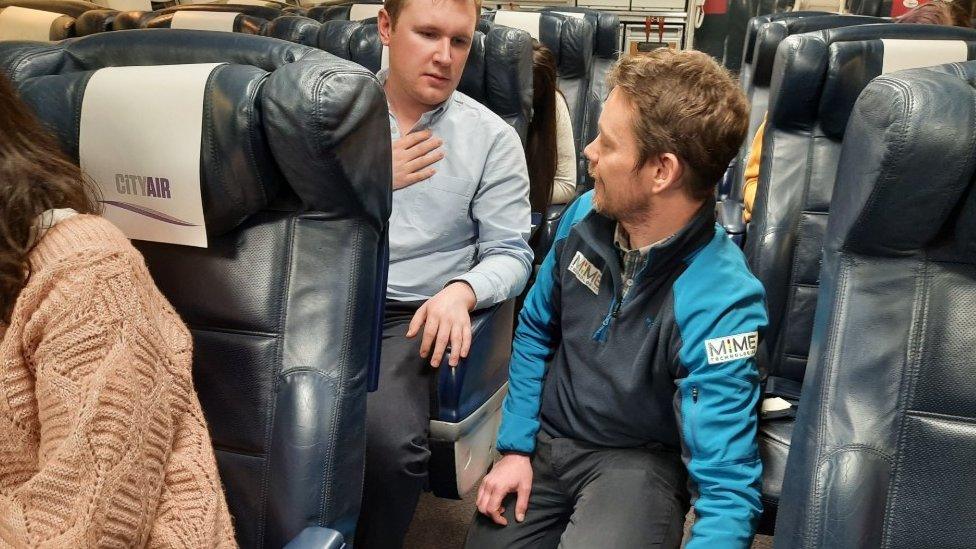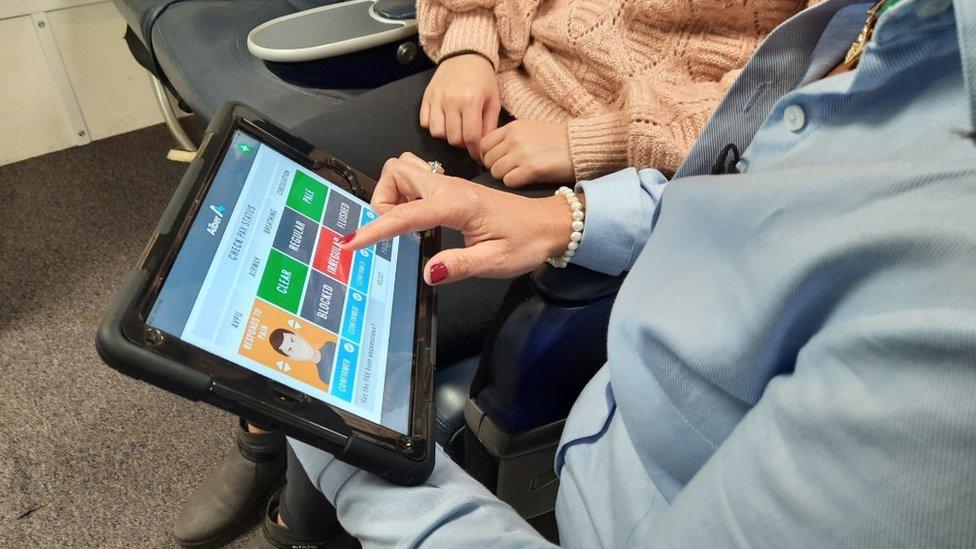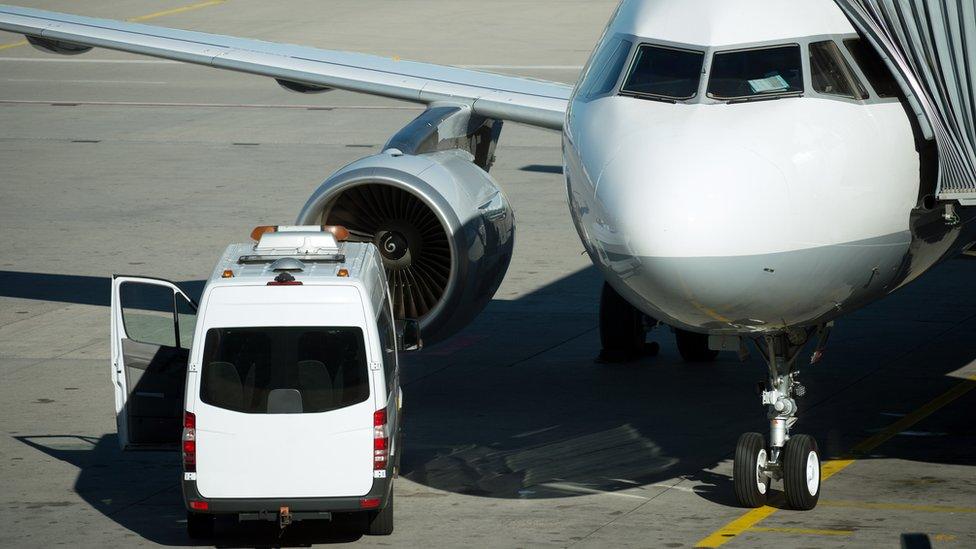Digital 'flying doctor' aids air travellers
- Published

The device streams information about the patient to doctors on the ground
An Inverness based company has launched a digital device to deal with medical emergencies in the air.
Aiber tracks vital signs like heart rate, and live streams the data to doctors on the ground.
"Is there a doctor on board?" is an unwelcome question to hear when you're several thousand feet up.
For the person who has fallen ill it underlines the seriousness of their situation.
For everyone else on board it's a warning they may be about to experience diversion and delay.
For the airline, it will be expensive. Fuel, landing and handling fees for a diverted aircraft - plus accommodation and catering for the delayed passengers - can run into the hundreds of thousands of pounds.
And a major airline may have to deal with dozens of medical diversions each year.
Lightweight kit
MIME Technologies, a company spun out of Aberdeen University, say Aiber will revolutionise how such situations are handled.
It's a lightweight piece of technology with a tablet computer at its heart.
A cabin crew member trained in first aid uses it to give the first indicators of what may be wrong: is the patient responding? Are they conscious? How much pain do they feel?
This is digitally streamed in real time from the passenger's seat to doctors on the ground.

The technology is designed for cabin crew to use
But that's just the beginning. MIME's co-founder Dr Alasdair Mort says "clever sensors" can also relay information such as temperature and breathing rate .
"It can look at things like the activity of the heart," he says, "which would help a doctor on the ground to tell whether someone's having a heart attack."
Chest pains and shortness of breath may be important indicators of this but they could also be caused by stress or indigestion.
For an airline it is desirable to eliminate the less life threatening possibilities before taking scores of passengers on an unexpected side trip.
Major airlines
Aiber also has a live chat feature between air and ground, backed by artificial intelligence (AI).
Dr Mort says it means discussions between the air and the ground can be in natural language:
"We use the AI to turn it into a really easy to understand 'Aiber report' that the cabin crew can use to communicate to the ground, and also to the paramedics when they arrive at an airport."

Medical emergencies cost the world's airlines millions of pounds
Because it is in real time, it allows an assessment of whether a passenger is stable or deteriorating.
The system was developed with input from two major airlines and has recently completed field trials with a global aviation company.
Its blend of medical science and digital technology has been supported by Highlands and Islands Enterprise and has won investment from Equity Gap investors and the Scottish Investment Bank.
Older passengers
MIME's chief executive and co-founder Anne Roberts says the device addresses what is expected to be growing issue.
"It's a global problem," she said.
"We've got four billion people that travel the world every year and we expect that to double to eight billion by 2037.
"The population is generally aging and people have long term conditions, so the chance of getting a medical emergency on board is higher."
Aiber can help with more than suspected heart attacks. Falls, burns, and allergic reactions all create crises in the air.
There has already been interest from big airlines and companies operating business jets.
If Aiber takes off, it could mean the difference between life and death - or at the very least between a diverted flight and arriving on time.